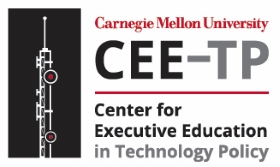Lead instructor: Eric Burger, Professor at Virginia Tech, former Assistant Director of the U.S. White House Office of Science and Technology Policy, former Chief Technologist of U.S. Federal Communications Commission
This course covers how governments can use distributed ledger technology, also known as DLT or blockchain. As important, this course covers where blockchain technology is not appropriate, despite vendors trying to sell governments on ‘novel’ blockchain solutions. The course begins with a high-level overview of the various kinds of distributed ledger technologies that make up blockchains. We look at the various mechanisms available to write and verify transactions to the ledger, such as permissionless proof-of-work and proof-of-stake as well as permissioned proof-of-authorization. We then look at what properties the various kinds of blockchain offer with respect to security, privacy, reliability, availability, and energy use. Finally, we look at smart contracts, or how we can make the blockchain programmable.
With these characteristics, we look at a few popular blockchains, such as Bitcoin, XRP, and Ethereum. Looking at the latter, we will also discuss a concept known as tokenization.
With this background, the course then moves on to how the various properties map, or not, to government functions and needs. This will bring us to some governmental (and relevant commercial) case studies, including Estonia’s E-government initiative, El Salvador’s Bitcoin initiative, Walmart/IBM’s supply chain initiative, and various U.S. state’s voting initiatives. We will also look at related governmental activities in the identity space, such as Estonia’s E-residency program and Dominica’s DMC digital identity.
Finally, the course ends with an interactive discussion on digital, fiscal, and legal sovereignty issues raised by the decentralized nature of blockchain. These concerns present novel, and some not-so-novel, issues governments need to think about when considering the embrace, or rejection, of distributed ledger technologies.
- This course is intended for government policymakers with an interest in what blockchain can mean for their government and population, especially those with responsibilities for continuity of operations, economic development, international money laundering, digital identity, and finance.
- Upon completing the course, participants will have a greater understanding of blockchain technology, what it is good for, and inappropriate use cases. Participants will learn from other countries’ experience with blockchain pilots and will be in a better position to decide if blockchain is an appropriate technology for their country’s use.
- Participants are not expected to be experts in technology. However, technology experts looking to the policy implications of the technology are welcome to attend.
